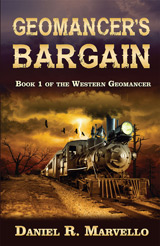 Two weeks ago, I started a beta reading program for my current work-in-progress Vaetra Unveiled. I just delivered the third installment of chapters moments ago.
Two weeks ago, I started a beta reading program for my current work-in-progress Vaetra Unveiled. I just delivered the third installment of chapters moments ago.
So far, the program has been a tremendous success, at least from my perspective. I have several committed readers who have been generous with critique and feedback. The experiment of using a training system to deliver the content and collect feedback has been less successful, but overall, not bad. In this post, I thought I’d share what has worked out well and what has not.
Beta Readers
My beta readers have been great. Most of the people who expressed an interest in reading the manuscript have actually done so, and they have replied with comments surprisingly promptly.
I wasn’t sure what to expect from them. Would they just read the book and give me overall impressions? Would they go a step further and critique the book, giving me feedback on what worked and what didn’t? Would they give me concrete feedback that I could use to improve the story?
The answer turned out to be “D: All of the above.”
Yes, I know you are normally supposed to tell your beta readers what you expect from them, but the people who volunteered were capable of providing feedback at multiple levels, and I didn’t want to place limits on them. In retrospect, I believe that was a wise decision.
This is my first novel and my first time having beta readers, but from what I understand, there is a distinction between “beta read” and “manuscript critique.” I’m getting a little of both. I’m even getting some copy editing. Whatever it is my “beta readers” are doing for me, I’m liking it.
One beta reader made a suggestion that turned out to be an excellent idea. He suggested I add line numbers to the PDF so it would be easier to comment on specific sections of the manuscript. I took his suggestion and created two PDF files for each installment: one with line numbers and one without. As anticipated, the readers are doing a reading pass with the plain manuscript, and then doing a commenting pass with the line-numbered manuscript. The readers are able to comment on very specific lines or sections of the manuscript without the awkwardness of having to count paragraphs. Everyone seems to love this approach.
The Installment Plan
I decided to release Vaetra Unveiled to my beta readers in installments. The program is scheduled to run 7 weeks, and each week I deliver the next batch of chapters (4 chapters in each installment so far). The goal with this approach is to let me start on my third draft and incorporate feedback from beta readers immediately after I finish the second draft. If I wait until the second draft is complete before I give it to beta readers, I’ll have a big “dead” time between drafts while I wait for feedback.
I was warned by one editor that giving the book to my readers incrementally could cause problems because some of their comments would be based on the fact that they’ve only read part of the book and don’t yet know where things are going.
I decided to accept that possibility for two reasons:
- I figured I’d be able to identify situations where that was happening and allow for them. So far, that has turned out to be true.
- If something doesn’t make sense to my reader, it’s a distraction. I want to know about it and possibly take steps to add foreshadowing or something else that eases the bump in their attention. I don’t want them to read on and later go “oh, that makes sense now.” I will have lost the opportunity to react to their initial impression.
So far, I believe an incremental critique has definite advantages over a full manuscript critique:
- I’m getting feedback right away, and it has already helped me do a better job with my second draft revisions before the beta readers even see them.
- My beta readers are able to focus on just four chapters at a time, and they have a week to do it. I believe they are giving me far more detailed feedback than they would if they had to comment on the entire manuscript at once.
- As I mentioned above, identifying story elements that don’t make sense until you read further is a situation that bears inspection. I doubt the readers would comment on these things if they later have an “ah, hah” moment.
The Training System
“In theory, practice and theory are the same. In practice, they are not.”
~ Albert Einstein
I decided to use a training system to deliver the beta content. The theory was that the training system would give me the tools I needed to stay in contact with my beta readers, deliver content to them, and collect feedback from them.
The reality has been that it has only been successful at delivering the content, which is something I could have accomplished with an email.
I ran into several issues:
- Posts in the discussion area are limited to 8,000 characters. That sounds like a lot, but my beta readers have been providing such excellent and detailed comments that the limit was, well, too limiting.
- Some beta readers don’t feel comfortable sharing their comments in a group discussion area.
- Readers have to remember to check a subscribe box for the “lesson” associated with each installment in order to get notified of responses to their comments. It’s easy to forget to do that.
- I still had to send an email to the beta readers informing them that a new installment was available.
I’ll finish the beta program using the training system, but I’m not sure I’ll use this approach again. The discussion area feature could still redeem the situation if my beta readers use it for specific comments or suggestions that they want to pose to the entire beta group. I’m not holding my breath for that one.
Conclusion
The beta program is working. I’m getting fabulous feedback, and I have absolutely no doubt the book will be much better for it. One of the best outcomes has been that their comments are helping ease my concerns about my ability to do this fiction writing thing.
Here are three specific examples of “overall reaction” comments that have been both thrilling and humbling:
First, I want to say how much I enjoyed these chapters. They’re exciting and interesting. If the rest of your book is this good, it’s going to be a real winner! I am shocked that this is the first novel you’ve written. It’s great.
I really am [enjoying it]! I am not just saying this, I am very into the story. I am waiting to find out what happens next. I could see a lot of sequels coming!
It’s an absorbing read – you are so doing what you need to do! Keep on trucking. I’ll look forward to the next chapters.
So it seems that I can write fiction. Hopefully, my beta readers will continue to be enthusiastic as they go through the remaining installments!










Hi Daniel, I’m a fellow campaigner. I think everyone revises differently and it needs to be what works for you. I do small chunks of revision with a critique group. It sounds like your beta readers are giving you the same kind of feedback as a crit group. Next I will request BETA readers for a full read through, followed by a MS Critique, which for me will be the last stage before querying.
Hi Michele. Your approach sounds more like what we are "supposed" to do, and I’m sure you’ll have great luck with it. My approach has been somewhat unconventional, but that’s only because I don’t know what I’m doing.
How interesting! Your approach is unconventional, but if it works for you, then it’s right!
Thanks for visiting, Jordan. I’m on week 6 now (only one more to go!), and the process is still working. I’ll probably take the same approach with my next book. A couple more benefits have come to light: Serializing the book builds a certain amount of anticipation in the readers, and giving the book to them in small chunks makes it easier for them to work reviewing it into their busy lives.